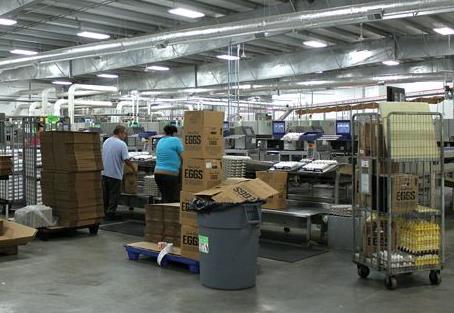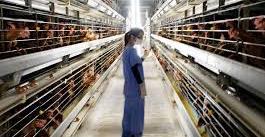Despite the relatively wide range of unemployment figures in U.S. states ranging from 2.7 in Utah to 7.9 percent in new Mexico with an average of 5.9 percent for the Nation, there are millions of job opportunities available, especially in positions requiring little or no training. Irrespective of the reason for the discrepancy between job opportunities and applicants, the food production, distribution and service sectors are short of workers. Solutions require creativity coupled with realism to recruit and retain workers. Essentially the apparent problem requires application of the principles of marketing. Employers have to define the needs of workers and develop remuneration and benefit packages that are both appealing and competitive to generate satisfaction and loyalty.
 Supplementary payments by the Federal Government and specific states will end in September, but structured research has shown that this largesse has not materially served as a deterrent to seeking employment. Small-scale employers with less than fifty workers may be at a competitive disadvantage if they are in an area where a large employer, such as Amazon or an auto plant is hiring. This will especially be the case if a large company offers a high starting wage, superior benefits, union representation and a congenial workplace compared to an agricultural enterprise.
Supplementary payments by the Federal Government and specific states will end in September, but structured research has shown that this largesse has not materially served as a deterrent to seeking employment. Small-scale employers with less than fifty workers may be at a competitive disadvantage if they are in an area where a large employer, such as Amazon or an auto plant is hiring. This will especially be the case if a large company offers a high starting wage, superior benefits, union representation and a congenial workplace compared to an agricultural enterprise.
Recently EGG-NEWS posted a report on McDonald’s Corporation assisting franchisees with supplements to be passed on to workers. In contrast, a private company such as Chick-Fil-A® has not reported any problem with either recruitment or retention. This is based on a long history of paying above standard wage in an area. The Company has provided health and educational benefits together with training, Sunday closing and permitting flexibility in work hours to accommodate family and scholastic commitments.
With regard to workers in laying houses and packing plants, producers are obliged to recruit from the area where they operate. With increasing scrutiny of eligibility for non-nationals, HR departments should evaluate the feasability of H-2A visas. Congress is currently responding to pressure from the agricultural sector to increase the number visas offered in this category allowing 12-month employment consistent with the needs of egg production and packing where training is required.
There are limits to flexibility that may be offered by QSRs, since egg production and packing require fairly rigid daily hours of operation. Start and finish times could however be adapted to the needs of workers, especially with regard to weekends given that our industry operates on a 24-7 basis.
 Wage rates in the case of workers and salaries for supervisors are the principal determinant of whether prospective employees will consider a position. Obviously starting rates are important. Recently a QSR in Durham, NC, posted a ‘workers wanted’ banner offering $10 per hour. Given that the going rate in the area for similar positions exceeds $12 per hour, the store concerned would be scraping the bottom of the barrel even if potential employees considered the lower rate. COVID has disrupted employer-employee relations and it is doubtful whether wage rates will ever return to 2020 levels. Many companies are offering sign-up bonuses payable one to three months after commencing work. These may serve as inducements especially for skilled employees, including maintenance personnel and those with skills who have a wide range of industry options.
Wage rates in the case of workers and salaries for supervisors are the principal determinant of whether prospective employees will consider a position. Obviously starting rates are important. Recently a QSR in Durham, NC, posted a ‘workers wanted’ banner offering $10 per hour. Given that the going rate in the area for similar positions exceeds $12 per hour, the store concerned would be scraping the bottom of the barrel even if potential employees considered the lower rate. COVID has disrupted employer-employee relations and it is doubtful whether wage rates will ever return to 2020 levels. Many companies are offering sign-up bonuses payable one to three months after commencing work. These may serve as inducements especially for skilled employees, including maintenance personnel and those with skills who have a wide range of industry options.
Health benefits are an important incentive as noted in union-employer negotiations that frequently place this benefit higher than base wage. Educational benefits are significant as denoted by the response to the Pilgrims Pride/JBS USA program which attracted more employees than their dependent children. Working conditions are important in the context of egg production, this might include provision of PPE, that in any event is necessary in the context of biosecurity, congenial rest areas and break rooms and installations and equipment that limit fatigue and physical stress.
Childcare is an important consideration in segments of the egg-production industry that employ women. Supplements to compensate for the high cost of childcare or participation in communal facilities may contribute to a satisfied and stable workforce. On-site accommodation could be provided for critical employees required to perform night checks or maintenance on farms. Although a significant investment, appropriate low-cost but comfortable accommodation for families either on-site or in the vicinity of farms or packing units may ultimately be required, especially for foreign workers holding H-2A visas. Many potential workers lack transport to plants and farms. Van pooling or transport supplements may facilitate recruitment if this problem is identified as a restraint to employee enrolment or attendance.
Employers should be aware of the restrictions relating to collusion in establishing wage rates and “no poach” agreements. The Administration has indicated that any activities that could be construed as restricting employment options or setting wages in an area are illegal and will be subject to investigation and penalties will be imposed if non-competitive practices are confirmed.
Given the profound change in the worker-employer equation, innovation and flexibility will be required, balancing wage rates, benefits, bonuses and work conditions going forward. Evaluating the specific needs of workers and developing remuneration packages are required now and in the post-COVID environment.